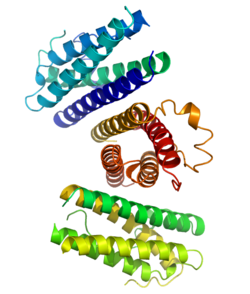Pegfilgrastim, is a 38 kDa, pegylated form of filgrastim, with a 20 kDa monomethoxypolyethylene glycol (mPEG) molecule covalently bound to the N-terminal methionyl residue of filgrastim developed by Amgen. Attachment of the mPEG-moiety enables a longer half-life, that enables only once-per-cycle administration for the management of chemotherapy-induced neutropenia. This results in a much simpler treatment regime for patients. The biosimilar version of pegfilgrastim developed by Intas Pharmaceuticals, and marketed by Accord Healthcare under the brand name Pelgraz, is one of the first pegfilgrastim biosimilars to be approved for market authorization in the European Union (EU) [1].
A comprehensive assessment of the Intas/Accord product in comparison to both EU and US-sourced originator products is discussed by the author Shekhawat and colleagues [2]. A high level of structural and functional similarity of biosimilar pegfilgrastim compared to originator pegfilgrastim using different analytical techniques for primary (N-terminal sequencing, peptide mapping and amino acid sequencing using LC-MS), higher order structure (circular dichroism [CD], Fourier transform infrared [FTIR] fluorescence spectroscopy, differential scanning calorimetry [DSC], nuclear magnetic resonance [NMR] spectroscopy) and functional assays (in vitro cell proliferation assay, flow cytometry based receptor binding assay, SPR binding kinetics) was demonstrated [1]. Liquid chromoatography (LC)-mass spectrometry (MS) and NMR were used to confirm the PEG-linkage specifically to the amine group of the N-terminal methionine by a secondary amine linkage.
In addition to demonstration of biosimilarity, the authors conducted an extensive characterization of impurities, which were observed to be slightly lower in the biosimilar product than in the originator product. The product variants resulting from the filgrastim portion and the variants due to the pegylation process, present at very low levels (less than 1% individual impurities), were all thoroughly characterized by isolating them, purifying and identifying the impurities using techniques including reverse phase, size exclusion, cation exchange high performance liquid chromatography (HPLC), sodium dodecyl sulfate polyacrylamide gel electrophoresis (SDS-PAGE) and LC-MS/MS. Further, the variants were also characterized by their ability to induce cell proliferation in an assay representing the mechanism of action of pegfilgrastim. The authors used a wide array of orthogonal techniques combined with functional characterization to provide insights into the type of variants expected in pegfilgrastim, as well as the correlation of structure to function.
The detailed analytical and functional characterization of biosimilars provides a high level of assurance with respect to the safety and efficacy of the biosimilar product. Additionally, the characterization of variants allows meaningful assessment of any changes observed during the testing of product stability.
Conflict of interest
The authors of the research paper [1] reported conflict of interest, including being employees of Intas Pharmaceutical. For full details of the authors’ conflict of interest, see the research paper [1].
Abstracted by Rakesh Shekhawat, Analytical Development Laboratory, Intas Pharmaceuticals (Biopharma Division), Ahmedabad, Gujarat, India.
Related articles
Selection of quality attributes and test methods in biosimilarity assessment
Analytical consideration in demonstrating similarity for biosimilars
References
1. GaBI Online - Generics and Biosimilars Initiative. EMA approves adalimumab and pegfilgrastim biosimilars [www.gabionline.net]. Mol, Belgium: Pro Pharma Communications International; [cited 2019 Aug 16]. Available from: www.gabionline.net/Biosimilars/News/EMA-approves-adalimumab-and-pegfilgrastim-biosimilars
2. Shekhawat R, Shah CK, Patel A, Srinivasan S, Kapoor P, Patel S, et al. Structural similarity, characterization of Poly Ethylene Glycol linkage and identification of product related variants in biosimilar pegfilgrastim. PLoS ONE. 2019;14(3): e0212622.
Permission granted to reproduce for personal and non-commercial use only. All other reproduction, copy or reprinting of all or part of any ‘Content’ found on this website is strictly prohibited without the prior consent of the publisher. Contact the publisher to obtain permission before redistributing.
Copyright – Unless otherwise stated all contents of this website are © 2019 Pro Pharma Communications International. All Rights Reserved.








 0
0











Post your comment